Senegal
Senegal's government on Monday (Feb. 05) restricted access to the mobile internet as opposition leaders and supporters launched protests against President Macky Sall's decision to postpone the Feb. 25 presidential election over an electoral dispute.
Tension remains high in Dakar, Senegal's capital.
Since Monday morning, lawmakers have been in plenary, and are set to vote on a bill to postpone the presidential poll. The delay was announced Saturday by president Macky Sall.
The bill recommends an election delay of up to six months. It would put the next likely election date in August, four months after Sall's tenure is due to end.
Various incidents in the city centre have punctuated the day. The opposition had called on supporters to gather in an attempt to prevent lawmakers from voting just as Senegalese did on J une 23rd, 2011. At the time, Macky Sall hadn't been elected just yet.
On Monday however, the protesters were dispersed by the police who used tear gas and pushed them out of the city centre.
Police and gendarmes cordoned off the city, preventing citizens from demonstrating their disapproval of the bill which was introduced by the party of former president Abdoulaye Wade (PDS) and enjoys support from the ruling coalition.
The day was not quieter inside Parliament.
Numerous incidents caused adjournments. Debates are ongoing as Senegalese anxiously await the outcome of the vote.
"Dissemination of hateful and subversive messages"
Senegal's presidential election has never been postponed. Protests that erupted on Sunday (Feb. 04) were expected to continue after opposition leaders condemned the election postponement as a "constitutional coup."
The Ministry of Communication, Telecommunications and Digital Economy said the internet was cut "due to the dissemination of several hateful and subversive messages relayed on social networks in the context of threats and disturbances to public order."
Sall on Saturday (Feb. 04) cited a dispute between the judiciary and parliament over the disqualification of some candidates and the reported dual nationality of some qualified candidates.
Senegal has been embroiled in political tensions for at least a year, including deadly clashes among opposition supporters and the disqualification of two opposition leaders whom the country's highest election authority said did not meet election requirements.
Senegalese authorities in June last year also cut internet access on mobile phones when supporters of disqualified opposition leader Ousmane Sonko clashed with security forces.
Analysts say the crisis in Senegal could further threaten West Africa's stability at a time when the region is struggling with a recent surge in coups and threats to democratic institutions.




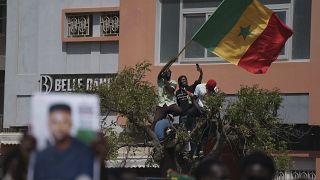
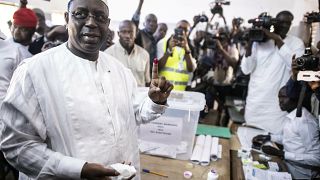
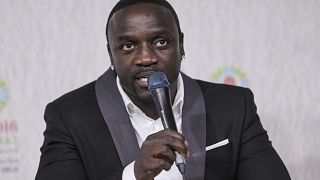
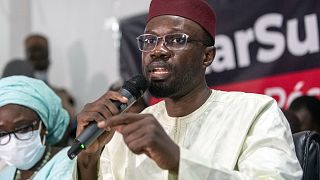
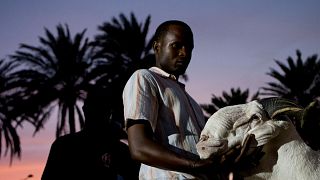


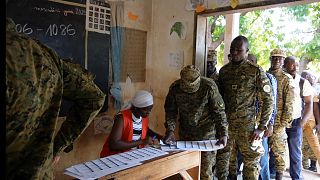
Go to video
Former Nigerian President to be buried today
Go to video
Islamic preachers in Burkina Faso rally against social media hate
Go to video
Ruto's $9M mega church sparks outrage amid Kenya's crisis
Go to video
“I can’t do nuttin’ for ya man”, Nigerian Minister quotes Flavour Flav in rejection of Trump policy
01:05
"Shoot in the leg": Ruto orders Kenyan police to curb protest vandalism
Go to video
U.S. slashes visa duration for some African nationals amid policy shift